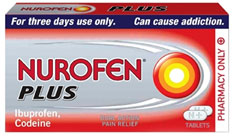Stuff that PR consultants just do
25th April 2023
What PR lessons has consumer product manufacturer Reckitt Benckiser learnt from the embarrassing saga, in which it was forced to recall tampered packs of its Nurofen Plus pain formula from the chemist and supermarket shelves?
 On first impression, you’d probably think that the PR profession would sympathise with the company, given that sabotage rather than something of its own making was the likely cause of the negative media coverage surrounding the brand.
On first impression, you’d probably think that the PR profession would sympathise with the company, given that sabotage rather than something of its own making was the likely cause of the negative media coverage surrounding the brand.
But, understandably, many in the public relations community believe that Reckitt Benckiser would have only had itself to blame if the whole affair had then gone on to develop into a full-scale PR crisis.
When the story broke, the company was far too slow off the mark to respond public concern and should’ve issued an immediate statement with information on how to spot the rogue packets and the likely effects of taking the tampered drugs.
Instead, the company buried its head in the sand and left much of the talking to the Royal Pharmaceutical Society, which made itself available to the media to answer any questions that worried consumers might have.
By promptly stepping in, the Royal Pharmaceutical Society may well have saved Reckitt Benckiser’s PR bacon.
But the point is that things could have looked very different were it not for the quick thinking of the Royal Pharmaceutical Society media relations team.
Reckitt Benckiser needs to remember that not all of its products are pharmaceuticals and that next time something similar happens it will, in all probability, need to act completely on its own.
Comments are closed.